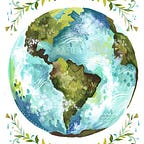Michael Ignatieff: “There is no global community”
By Meerim Nurlanbekova
Michael Ignatieff is a president and rector of Central European University (CEU)in Hungary, Budapest. Born in Canada, educated at the University of Toronto and Harvard, he is a university professor, writer and former politician. He holds a doctorate in history from Harvard University and has held academic posts at the University of British Columbia, Cambridge University, the University of Toronto, the London School of Economics and Harvard University, where he was Director of the Carr Center for Human Rights Policy between 2000 and 2005. (1)
Last time, we, students of Global Citizenship course, have been able to watch his “live” lecture about Global Citizenship, from where I got several insights about Global Citizenship. Here I would like to emphasize his thought that challenged me the most and made me think further, which is:
“There is no global community in the world”
“There is no one single global community in the world.” This claim made me ponder of it for a while, and I would like to examine it further. I thought that if there is no single global community than why do we need global citizenship? What for? Should not all state-communities strive for unity? If there is no global community, if every nation-community will strive for its own prosperity and development, then it will undermine the whole global peace. The notion of united global community will inspire and encourage more people to not only advocate their own sates, but also the rest communities, which will lead to peace and unification of all nations. I think that the existence of a concept of global community will promote global citizenship. Imagine that every state-community is divided from each other, and does not have any connections in between. How one might become a global citizen in such case? Because of the existence of globalized society nowadays, where one community is connected to another by ethical, historical, economical. social, cultural, ideological and political ties the world is like a web, and that web would be called Global Community.
“There is no one single global community in the world.” If we approach to it from the opposite side, then the quote makes sense. Since there are no other communities except on Earth, technically there cannot be any global community representing Earth. Also, what professor Ignatieff was probably trying to say is that there is no legitimized global community. There might be a world community in an abstract way, but not in a legal framework. However, global citizenship does not also have any legal framework. There is no certification or a legal document. It is what people and communities themselves conceptualized it. Having examined it, why cannot we then conceptualize a one single global world?..
To conclude my reasoning of professor Ignatieff’s thought of a global community, I would like to highlight the importance of connections and interactions with the communities. Migration, refugees, climate change, gender inequality, human trafficking — all these borderless issues are worth to unite and create one global community! As Parekh in “Cosmopolitanism and Global Citizenship” said one has moral obligations not only towards “our” fellow citizens but also towards citizens present outside of their community. (Parekh Vol. 29, №1 (Jan., 2003), pp. 3–17) The world is one, and there is no stranger as long as we share one planet.
(1) https://ces.fas.harvard.edu/people/001575-michael-ignatieff
